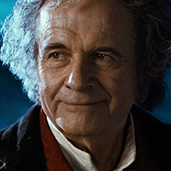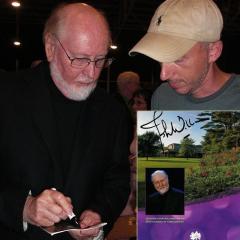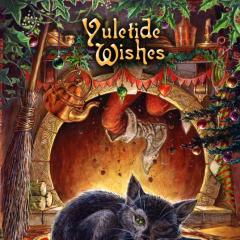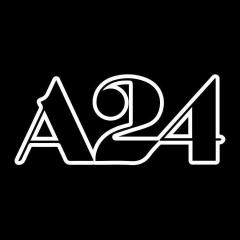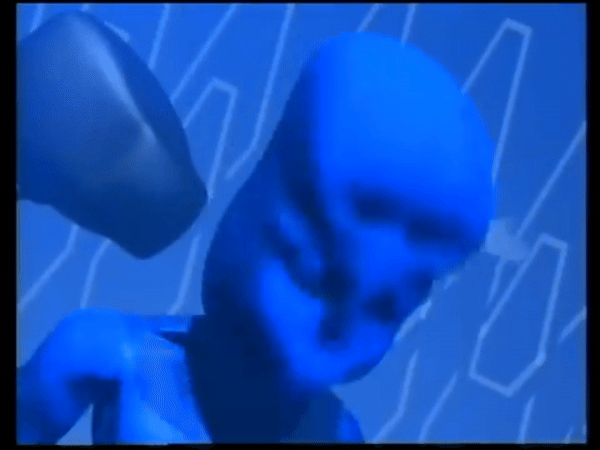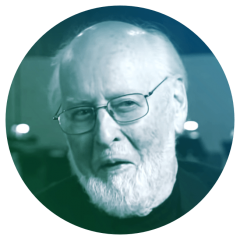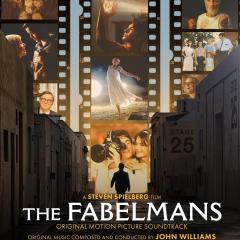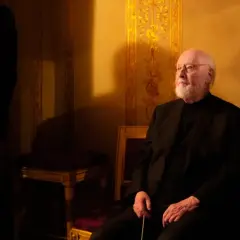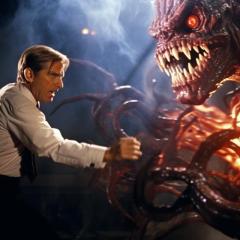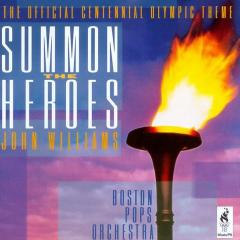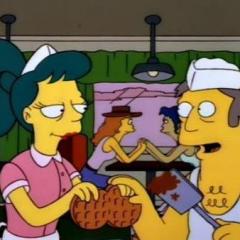Leaderboard
Popular Content
Showing content with the highest reputation on 26/03/17 in all areas
-
I have it too..! Only my season runs from January 1 all the way to December 31..!3 points
-
Yes, because when JWFan has no real females, it becomes necessary to invent them.3 points
-
2 points
-
I already told people so in the '90s! And Foster plays like an animated Disney character ....2 points
-
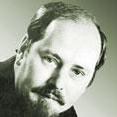
The Classical Music Recommendation Thread
nightscape94 and one other reacted to Loert for a topic
I link the second movement only, but the rest of the symphony is great too (though I find Casella to be a bit "uneven" sometimes). This movement has a cinematic feel to it.2 points -
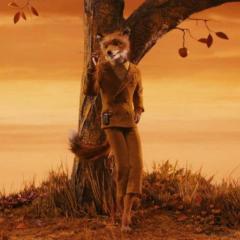
Michael Giacchino's Rogue One: A Star Wars Story (2016) - 2022 Expanded Edition now available
Pieter Boelen and one other reacted to John for a topic
.2 points -
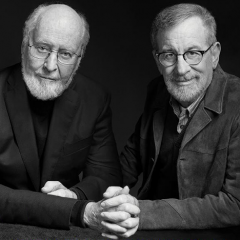
REMIXED & RESTORED: Jurassic Park
wowbobwow reacted to Mr. Breathmask for a topic
REMIXED & RESTORED: Jurassic Park Quick links: 1. Opening Titles/Incident at Isla Nublar 2. The Encased Mosquito 3. Entrance of Mr. Hammond * 4. Journey to the Island 5. Stalling Around ** 6. Hatching Baby Raptor 7. You Bred Raptors? 8. The History Lesson 9. Jurassic Park Gate ** 10. Goat Bait * 11. The Saboteur * 12. Ailing Triceratops * 13. The Coming Storm 14. Dennis Steals the Embryo 15. Race to the Dock 16. The Falling Car and The T-Rex Chase * 17. A Tree for My Bed 18. Petticoat Lane **/My Friend the Brachiosaurus ** 19. Life Finds a Way * 20. System Ready * 21. To the Maintenance Shed **/High-Wire Stunts */Hungry Raptor * 22. The Raptor Attack * 23. T-Rex Rescue and Finale * 24. Welcome to Jurassic Park (film version) ** 25. Welcome to Jurassic Park (album version) * Bonus tracks from the 2022 remaster: 4a. Journey to the Island (film version) 14a. Dennis Steals the Embryo (film version) * contains unused music ** micro-edited in the film More REMIXED & RESTORED: The Lost World: Jurassic Park Introduction In 1993, Steven Spielberg unleashed dinosaurs upon the world. Jurassic Park, one of those perfect popcorn blockbusters and a revolution in computer graphics, bringing dinosaurs back to life in a way no one had ever seen before, dominated the summer box office. In Jurassic Park, billionaire John Hammond (Richard Attenborough) and his company InGen have found a way to recreate dinosaurs. Ever the entrepreneur, Hammond decides to build a theme park around his creation. After one of the animals kills a worker, Hammond’s investors call for an investigation into the park. He recruits paleontologists Alan Grant (Sam Neill) and Ellie Sattler (Laura Dern) to inspect the island. Also along for the ride are Ian Malcolm (Jeff Goldblum), a charismatic but skeptical mathematician, Hammond’s lawyer Donald Gennarro (Martin Ferrero) and Hammond’s grandkids (Joseph Mazzello and Ariana Richards). But despite Hammond’s repeated claims that he has "spared no expense" on his dazzling theme park, there is still one disgruntled employee (Wayne Knight), who is willing to spy for a rival company, steal a bunch of dinosaur embryos and cause a whole lot of mayhem in the process. What looked like stunning achievement soon turns out to be an uncontrollable danger, calling into question the range of control man has over nature and putting everyone’s lives in the balance… An expertly made film, Jurassic Park grew a large fanbase and spawned a franchise that - although long dormant at the start of the 21st century - is still going today. Jurassic Park also gave us - like 11 out of the 12 preceding theatrical releases directed by Spielberg - a brand new John Williams score. One that would - like many of Williams' most famous works - join the ranks of seminal adventure blockbuster scores. In several places, Jurassic Park is also a thriller score, amping up the tension created by the corporate espionage subplot running through the first half of the film that finally causes the park to unravel. John Williams’ Jurassic Park is the composer in full-on blockbuster adventure mode. In fact, I’d argue Jurassic Park - particularly on album - feels like a John Williams compilation. It features both a slow, majestic theme that mirrors the awe of Close Encounters of the Third Kind and a rousing, bombastic adventure theme that can sit snugly beside material from the Indiana Jones series. It has some ethereal music for the young and vulnerable dinosaurs that sounds like a precursor to Williams’ work on A.I. eight years later, pensive material slightly reminiscent of Home Alone and a tense conspiratorial cue that sounds like an adaptation of material from JFK. Indeed, to many John Williams fans Jurassic Park is a seminal score and album. A gateway into the work of a man who has defined the Hollywood blockbuster sound for several generations. The original soundtrack album presents the music not in chronological order, but rather clustered around the various ideas and sounds running throughout the score. Many tracks feature a pairing of cues that are spread out in the film but are thematically or texturally similar. Now, with La La Land’s wonderful recent complete release in our players, we are able to enjoy the entire score in chronological order and get an exact idea of what music was dropped or replaced. Because as with most films, the presentation of the score in the final film differs slightly from what was recorded. One interesting recurring decision you’ll find when lining up the score to the finished picture is that the carnivore motif that is first heard in the opening titles, features almost exclusively in passages that were dropped from the film. It is given several loud plays that were cut in favor of Gary Rydstrom’s stellar sound design or replaced with other music. Over the coming weeks, we’ll be looking at each of the pieces written for the film, what music was dropped, how that would have played in the picture and discuss how these editing decisions change the shape of the final film. The idea for these videos is not to provide an isolated score track or to function as a fan mix that replace the original mix. Instead, I aim to bring the score into the foreground while keeping most of the dialogue and effects intact wherever possible. Jurassic Park has a very well-designed soundscape, where music and effects often go hand in hand and I wanted to honor that. It also works well when restoring unused music. When we get to stuff like Goat Bait, you'll get to hear how the music interacts with the dialogue, while still keeping the music in the foreground of the mix. Once I'm done with Jurassic Park, expect to see something similar for The Lost World, which is a veritable treasure trove of unused material! But first, let’s start right at the beginning. 1. Opening Titles/Incident at Isla Nublar 1mA Opening Titles 1m1 Incident at Isla Nublar As the movie starts with the reveal of the Universal logo, there is no music. The quiet of the theatre is broken only by sounds of the jungle. A deep drumbeat disrupts the jungle sounds and opens the film and the score. Along with choir and the first iteration of the carnivore motif, it sets a tone of danger right off the bat. After the credits, we open the film proper on moving tree branches and the faces of tense Jurassic Park workers. After a brief moment of sound design, it is revealed something mechanical is moving the trees. Williams’ score kicks in again right as we cut to ROBERT MULDOON, whose commanding presence will lead the following scene and who will return for a large role later in the film. Williams starts the cue with a synthesizer baseline, strings and metallic sounds. Right away, the synthetic and the organic are intertwined with ominous results. This builds until the dinosaur crate is opened and all hell breaks loose. The frenetic style of action music that will be heard during more of the dinosaur attacks later in the film is heard for the first time, this time also accompanied by an ominous low choir. As the cue ends, we hear for the first time how well music and sound design are integrated in the final film. The cue fizzles out a bit on the complete score album, but in the film the echoing gunshots take over from Williams’ frantic action scoring and take us into the contrasting serenity of the Dominican Republic’s jungle. Both these cues are played in the film in their entirety.1 point -
John Williams in attendance at Henry Mancini Tribute
Ricard reacted to MovieMusicMaestro for a topic
http://www.broadwayworld.com/thousand-oaks/article/The-Wallis-Celebrates-the-Musical-Legacy-of-Henry-Mancini-with-Star-Studded-Tribute-on-41-201703211 point -
George Gershwin (September 26, 1898 – July 11, 1937) was and remains one of the most successful and utterly American composer of all time. It is not surprising that John Williams recorded and arranged some of his best works! I will take this opportunity to again go back in time and dig into John Williams's discography, as we celebrate this year the 80th anniversary of Gershwin's death. Manne–That's Gershwin! In 1965, John Williams handled the musical direction, arrangements, and orchestrations of Shelly Manne's LP Manne—That's Gershwin! In 2002, Steve Houghton re-recorded those arrangements. For this "remake," Houghton formed a quintet (with trumpeter Clay Jenkins, altoist Dan Higgins, pianist Stefan Karlsson, and bassist Lou Fischer) and utilized the University of North Texas Two O'Clock Lab Band. The musicians interpret the ten selections from the original album (which includes a few combo pieces) plus four additional quintet performances, with all of the music being by George Gershwin. Highly recommended. Manne–That's Gershwin! (1965, Capitol Records, T-2313) Arrangements and Musical Direction by Johnny Williams. (Released in 1965, Capitol Records, ST-2313, Stereo) (Reissued in 1984, Discovery Records, DS-909, Stereo) Steve Houghton Quintet - The Manne We Love: Gershwin Revisited (2002, TNC Recordings, CD-1713)* Concerto Intro; By Strauss; My Man's Gone Now; Mine; Love Is Here To Stay; Summertime; Real American Folk Song; The Man I Love; Prelude No. 2; How Long Has This Been Going On?; Concerto In F; Soon; Love Walked In; Plenty O' Nuttin'; Lady Be Good. * You can buy this album here: https://www.tncmusic.net Love is here to stay “Love Is Here to Stay” is a song written by George Gershwin with lyrics by Ira Gershwin for the movie "The Goldwyn Follies" (1938). It reached popularity in 1951 when it was sung by Gene Kelly to Leslie Caron in the film "An American in Paris". In 1984, John Williams recorded it with the Boston Pops Orchestra and the american opera singer and recitalist Jessye Norman. With a Song in My Heart (1984, Philips, 412 625-1; Norman, Boston Pops O/Williams) Falling In Love With Love; In The Still Of The Night; Spring Is Here; I'm Old-Fashioned; A Sleepin' Bee; I Love Paris; The Song Is You; I Love You; Love Is Here To Stay [Featuring John Williams (p)]; All The Things You Are; Love Walked In; With A Song In My Heart. (Released in 1984, Philips, 412 625-2) (Reissued for digital download in 2014, Decca) An American in Paris An American in Paris is a jazz-influenced symphonic poem written in 1928. Inspired by the time Gershwin had spent in Paris, it evokes the sights and energy of the French capital in the 1920s and is one of his best-known compositions. John Williams recorded it with the Boston Pops Orchestra in a 1990 tribute album called "Pops by Gershwin", as well as some others Gershwin's most memorable works, like the famous "Rhapsody in Blue". Pops By George: The Music of George Gershwin (1990, Philips, 426 404-2; Dichter, Boston Pops O/Williams) An American In Paris; Suite From Porgy & Bess; Selections From Girl Crazy; Rhapsody In Blue. (Released in 1990 "Pops by Gershwin", Philips, 426 404-2) Strike up the band Strike Up the Band is a 1927 musical with a book by Morrie Ryskind, lyrics by Ira Gershwin and music by George Gershwin. It ran in Philadelphia that year, unsuccessfully, and on Broadway in 1930 after the original book by George S. Kaufman was revised. The story satirizes America's taste for war: America declares war on Switzerland over a trivial trade issue. The overture is often performed as a stand-alone concert work. John Williams recorded two versions of this overture, both with the Boston Pops Orchestra. The first one for the 1980 album "Pops on the march" and the second one, for the 1991 album "I Love A Parade". I Love A Parade (1991, Sony Classical, SK 46747; Boston Pops O/Williams) I Love A Parade; Midway March; Washington Post March; Seventy-Six Trombones; El Capitan; South Rampart Street Parade; Semper Fidelis; Liberty Bell March; Colonel Bogey March; Strike Up The Band; The Thunderer; Hands Across The Sea; King Cotton; Pops On The March; Under The Double Eagle (Unter Dem Doppleladler); The Stars And Stripes Forever. Fantasy for violin & orchestra on Porgy and Bess Jascha Heifetz asked George Gershwin to compose a violin work, but the composer's early death prevented what would no doubt have been a fruitful collaboration. Whether Alexander Courage's 'Fantasy for Violin and Orchestra on "Porgy and Bess"' is "as close as we can get to the violin concerto Gershwin never wrote," as Joshua Bell says, is certainly a point for debate. Courage, composer of the original 'Star Trek' theme, was asked by conductor John Williams to assemble the fantasy and the result is a showpiece for violin which uses eight songs from 'Porgy and Bess.' The work is a successful vehicle for the soloist: Bell's Stradivarius sings as he glides through the passagework with ease. Gershwin Fantasy (1998, Sony Classical, SK 60659; Bell, London SO/Williams) Fantasy For Violin And Orchestra On Porgy And Bess; Three Preludes [Featuring John Williams (p)]; Songs For Violin And Orchestra; I Got Rhythm; Embraceable You; Nice Work If You Can Get It; Liza; But Not For Me; Sweet and Low-Down; Love Is Here To Stay.1 point
-
I don't think the site or forum will really ever close down, unless Ricard can't keep it going for whatever reason. Which would be heartbreaking, I would never want to see it become an empty domain name. I don't think it will. Some things might have to change if Andreas or LeBlanc ever step away, I dunno how difficult it would be to find replacements. But I'm counting on Ricard to always be around to look after his baby. Bottom line for me as a member is that I have a variety of reasons why I visit JWFan and when there's officially no more new Williams stuff coming, a big chunk of those ongoing reminders will evaporate. Honestly I'm browsing here a few times a day and I know that naturally won't happen with him gone. I figure I'll always want to check in, maybe weekly, maybe monthly, maybe less, but at any rate I just assume there will be enough regulars with similar habits that traffic will slow down. I don't think it'll kill the board but I could see GD's activity eventually settling to something like where Other Topics is right now, and the Williams sub-forum about where Tolkien Central is at.1 point
-
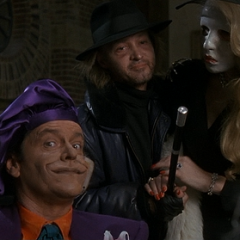
Favorite short musical moments in Williams scores?
Alex reacted to Gruesome Son of a Bitch for a topic
The insert from the opening of the Harry Potter 3 end credits.1 point -
1 point
-
1 point
-
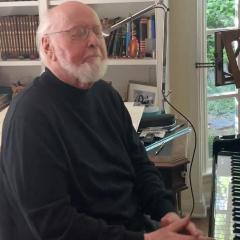
The Patriot (John Williams)
Cerebral Cortex reacted to Alex for a topic
I really do love the reprise of the main theme.1 point -
1 point
-

The John Williams Jurassic Park Collection from La-La Land MUSIC Discussion
Holko reacted to Richard Penna for a topic
Doesn't change the fact that A) it's what we heard in the film, and B) it can't be recreated using what we have. I would think that sufficient reason to at least try to include it. To me, the film edit is wonderfully subtle and haunting, with its gradual build. The original version doesn't have the same effect. I may be a minority, but I prefer the film version. Thing is, you buy a soundtrack to relive what you heard in the film. If an entire release were comprised of 'early' versions that didn't sound anything like what ended up in the final film, then you wouldn't really be buying the 'soundtrack'. Hence, if a film version is drastically different, then the composer's original intention should be the bonus - I want to hear what I loved from the film. Whether it was an edit is irrelevant to the purchaser.1 point -
Star Wars "Rebels" - Kevin Kiner Returns!
Bilbo reacted to DarthDementous for a topic
well I mean of course it'd fit well into one of the original films seeing as how most of the piece is recycled note for note from ANH. the fact it was a live orchestra immediately stood out to me and it was a nice change that highlighted a rather dramatic episode and the music had some highlights but also at times it delved into generic kind of action music and I lost interest. I also heard that Kevin Kiner is not the only composer for Star Wars Rebels, but that other music has been provided from other sources. do you know if that's true or not?1 point -

The DCU - DC Universe
Cerebral Cortex reacted to crumbs for a topic
Also, someone should tap him on the shoulder and inform him there are colours beyond teal and orange, and films can actually take place in daylight!1 point -
'S Wonderful, yes! Another great Gershwin's song recorded by the Maestro!1 point
-
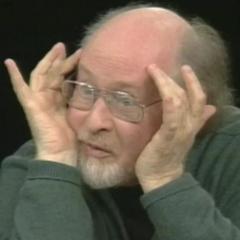
Is John Williams seasonal?
Bryant Burnette reacted to Thor for a topic
Same here. Only exception is the HOME ALONEs, which I only play around Christmas time.1 point -
1 point
-
1 point
-
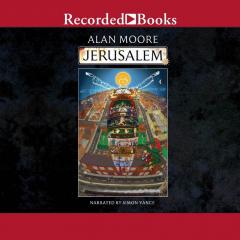
The MCU - Marvel Cinematic Universe
Pieter Boelen reacted to #SnowyVernalSpringsEternal for a topic
Nowadays I am not. I recently bought and read Alan Moore and Dave Gibbon's Watchmen, which is the only thing I've read in years. But when I was a kid I did read loads of comic books. Though I was always more into the Belgian stuff than the American. Suske en Wiske, Kuifje, Asterix and Obelix, bit of Robbedoes, and Guust Flater. Good stuff!1 point -
Is that an attempt at humour?1 point
-

The MCU - Marvel Cinematic Universe
Pieter Boelen reacted to #SnowyVernalSpringsEternal for a topic
Well that's actually fine, since that's what Spider-man has done for decades in the comics. I guess thats where Raimi erred. His Spider-man films just arent that funny.1 point -
1 point
-

What Is The Last Film You Watched? (Newer Films)
Unlucky Bastard reacted to #SnowyVernalSpringsEternal for a topic
Virility is important! Having balls mean you can shoot seeds into women and inpregnare them! Virility is power!1 point -
Man, this thread makes me really nostalgic/sentimental somehow, because, frankly, it's something that's very tied into where my own life will go, whether I will be visiting JWFan for years to come or whether I will move on (although I'll never move on from listening to JW's music!) I sometimes like to think that things will continue with the same vigor even once he has left this earth, or even just retired. But is that realistic? Is it even ultimately desirable? I agree with @mrbellamy in that my main attraction to this place is based on anticipation, not reflection. What do I, personally, like to anticipate? Primarily, John Williams scores, of course, and Star Wars films (particularly, then, Star Wars films with JW scores!) So when JW is no longer producing new scores, the only major thing left to anticipate for me will be SW. And of course there are and surely will be tons of other forums to discuss SW. That said, this is the place where I've really come to know people, so it would still be really great if I was able to discuss the new SW films/scores here. And there will be probably be other fun things to anticipate that we can't even predict at this time. For example, new scores by awesome new composers who haven't even entered the business yet. But can we remain comrades simply based off of memories? Because that's really in many ways what it might be, methinks. Frequent nostalgic look-backs to making your prequel edits together, seeing and discussing the TFA score for the first time, etc. There would be few new "core memories" to make (to borrow a term from Inside Out ). Or maybe I am wrong on that. I don't know. I haven't been here as long as most of you. But it does seem like I'm not the only one who realizes that the only true "unifying events" these days seem to be new JW scores/projects (frankly, the weak reaction to the BFG does challenge that hypothesis, but, in any case, TFA certainly was quite an event here to say the least). Maybe a little while after he passes, after waiting for the grief to settle down, after waiting a little longer for any major remaining unreleased music to be released, it might be time to close things down. I dunno. After all, members who want to stay in touch occasionally could still set up a Google Hangout or something. There may just not be a need to keep this place going. The biggest regret I would have would be if there wasn't a way to archive the threads for posterity. I wouldn't want us to lose everything. Ultimately, I'm not sure if rabid JW fandom is something we should all be doing for large amounts of time for our entire lives. With the exception perhaps of those who enter the music field, JW's music isn't really an end unto itself, however often it may seem that way; it's something that inspires us in our lives. And if we spend so much time discussing JW music that we can rarely be inspired by it to actually do things, then what was the point? I dunno, just my overly philosophical two cents.1 point
-

What Is The Last Film You Watched? (Older Films)
crocodile reacted to Gruesome Son of a Bitch for a topic
But it has that amazing CGI shot no one notices!1 point -
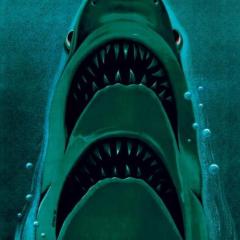
What Is The Last Film You Watched? (Older Films)
bollemanneke reacted to crocodile for a topic
Contact. It is a likeable film with solid performance from Jodie Foster. But it hasn't aged very well. For all the science it's full of clichéd lines, clichéd characters and heavy-handed plotting. It's just way too 1990's. The score is a bit too sugar-coated, even if I aporeciate it doesn't go for big gestures. It's likeable but there's not much left in there to explore. It's also too long. Shame really. Karol1 point -

Favorite short musical moments in Williams scores?
Sharkissimo reacted to Jilal for a topic
It's that constant feeling of tension and propulsion (most apparent in the faster movements) that I really enjoy.1 point -
1 point
-

Favorite short musical moments in Williams scores?
Cerebral Cortex reacted to Loert for a topic
Love these two notes between 3:27-3:33:1 point -

80th death anniversary of Gershwin
Will reacted to Gruesome Son of a Bitch for a topic
Don't fucking post anything with the word 'death' in the title on the Williams forum!1 point -
.thumb.gif.df2a851b259fbffe34b18fc1c796422a.gif)
Favorite short musical moments in Williams scores?
Will reacted to Cerebral Cortex for a topic
Fun Fact: You could have posted literally anything from War Horse and I still would have liked the post.1 point -
In the heyday of his conducting (BPO years), the ratio of other people's music to his was like 10 to 1. At this point, when he does conduct, he seems like he is on an extended farewell tour, giving the largest segment of the audience what it wants. At the end of the day, I think he sees conducting only as a means to an end. Composing he seems to find his artistic fulfillment.1 point
-

.
Pieter Boelen reacted to Thor for a topic
I've never really had a relationship to any of the PIRATES movies, but I'm kinda curious about this one because of the two Norwegian directors. I've followed their work throughout the years, and they've delivered some really solid material. Should be interesting to see them in their first major Hollywood production. Several Norwegian directors "making it big" in Hollywood these days, which makes me kinda proud.1 point -
Very beautiful sonorities. I really enjoyed it and it had some unexpected harmonic twists. Good luck having the opportunity to record live again. This will go a long way in helping you get bigger budgets. Remember, many composers throw their entire fee into a recording when getting started because it’s an investment in their ability to get more work and higher budgets. Even with very modest budgets you can get at least one or two live players who have their own studios and can record remotely. At 1:39, I really could imagine a somewhat static high violin counter line there but that is speaking from a purely musical perspective. Obviously, this is a decision for you and your boss. Did you do the mix as well? Good job making the choir sound behind the strings and good separation. At 3:39 that sequence reminds me somewhat of Goldenthal, one of my favorites so that it’s a very good comparison. There were a few places (like at 3:57) where the click might have forced a strict rhythm that didn’t feel natural to the phrase before the melodic repetition. Did you have any difficulty with dynamics? Sometimes when in a crunch, musicians play somewhat in the middle volume (playing it safe) and this really feels like it could have benefited from more dynamic contrast. That or there is too much compression. For example, you have a wonderful build up to a climax at 5:18 but part of the build is lost since there isn’t enough dynamic contrast before. My advice to you is try to work with the click a bit more to make it feel less static and more lifelike next time you get to record live players. Overall, a very fine work you must be very proud of. I really loved the sequence around 7:00 with the low non-harmonized pedal against the strings. Very beautiful. How much feedback or direction did you get from the director? Congratulations KK!1 point
-
First time poster here, long time lurker..... I just had to create an account to admonish you all! Nobody here remembered "America, the Dream Goes On!" Shame on everyone!! Seriously though, my favorites songs are probably "The Long Goodbye" and "If We Were in Love."1 point
-

Will JWfan last long after John Williams?
Gruesome Son of a Bitch reacted to Unlucky Bastard for a topic
Change it to David Arnold's Roland Emmerich movie score forums.1 point -
1 point
-
From what I can deduce, the film version of the Rex tent scene is Ripples: 1:15 - 1:35 looped twice 2:54 - 3:12 minus synth overlays quietly brought forward in mix The synth when the Rex shadow appears over the tent is probably SFX 2:54 - 3:12 again minus synth 3:04 - 3:08 the looped tense strings here comprise the majority of the film edit Then they've taken some of the brass punches from 3:12-3:24, isolated them from the percussion (alternate take?) and used these to hide the loop points of the tense strings (leading up to Carter screaming). In the original track, the brass is underscored with percussion leading up to Carter screaming; this is replaced with these repeating strings in the film edit. The music is mixed very quietly throughout and the Rex noises are kept loud to mask the edits. It's brilliant for what it is, but presumably at full volume and isolated from the sound effects, the editing would be obvious. The seeming slow build of the orchestra volume is probably just clever mixing. They created a 2 minute 'bed' of those strings and the lighter percussion, then just gradually increased the volume to give the illusion of a live orchestra building louder (while adding extra elements like the brass).1 point
-
I love love love that syncopated (at least I think that's syncopation) "di-duh" figure at 8:58 (I was listening to Escapades recently on the new CD on Spotify). It's a classic Williams-ism and one of my very favorites, often appearing in his terrific action writing (at least I think it's a version of the same figure - I'm no musical expert). Example of an absolutely kickass use in an action cue:1 point
-
https://youtu.be/kPKszGsICI0?t=336 5:36 - end Epic! More moments like this in the upcoming Star Wars please!1 point

